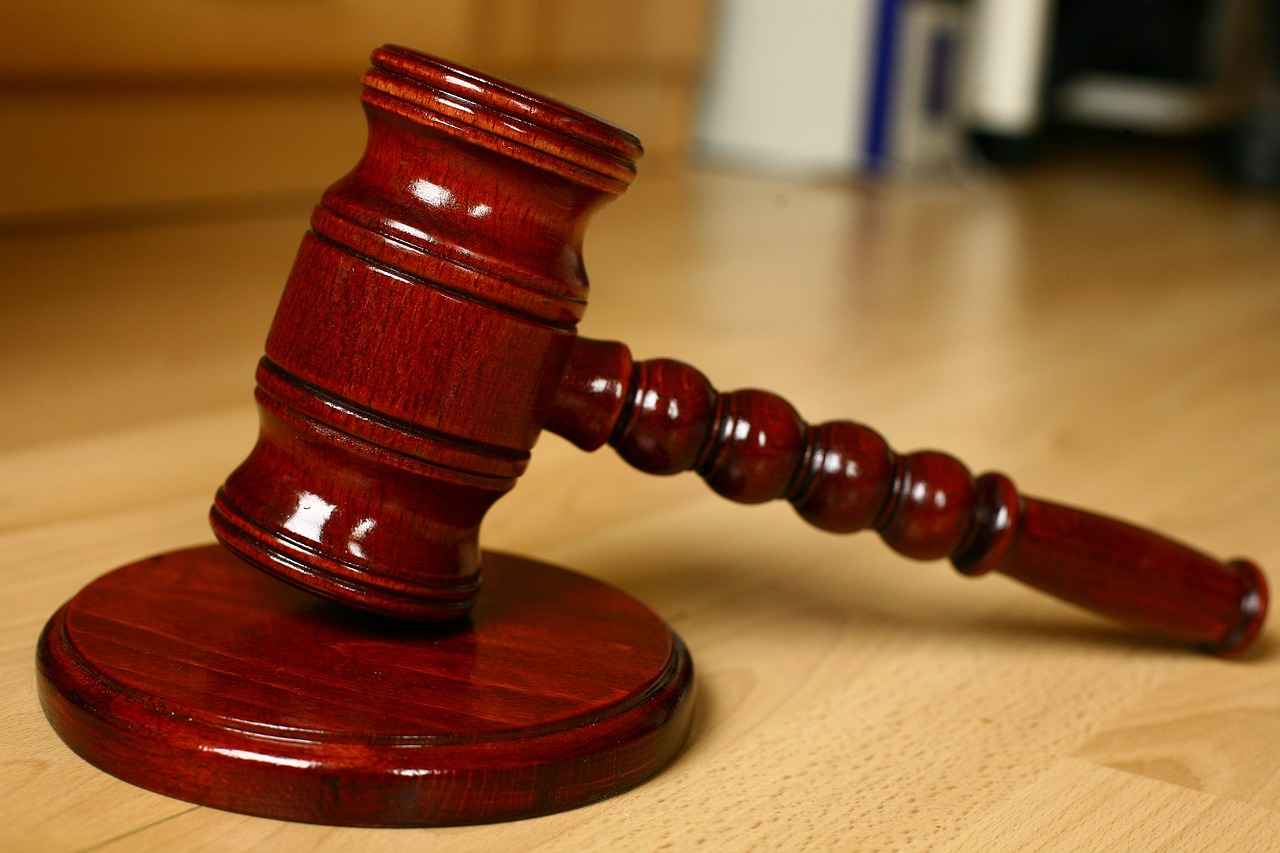This article explores various legal cases in the U.S. and provides expert guidance on how to find qualified lawyers in Plano, Texas, ensuring you make informed decisions.
Personal injury cases are among the most common legal disputes in the United States. They arise when an individual suffers harm due to another party’s negligence. Common examples include car accidents, slip and falls, and workplace injuries. To find a qualified personal injury attorney in Plano, consider the following:
- Experience: Look for attorneys who specialize in personal injury law and have a proven track record of successful settlements.
- Reviews: Check online reviews and testimonials to gauge client satisfaction.
- Consultations: Many lawyers offer free initial consultations. Use this opportunity to assess their expertise and approach.
Medical malpractice occurs when a healthcare provider fails to deliver the standard of care, resulting in patient harm. This complex area of law requires specialized knowledge. To find a medical malpractice attorney in Plano:
- Specialization: Seek lawyers who focus specifically on medical malpractice cases.
- Credentials: Verify their qualifications, including any board certifications in medical malpractice law.
- Case Studies: Ask about past cases they have handled and their outcomes.
Breach of contract cases arise when one party fails to fulfill their contractual obligations. This can occur in various contexts, including business agreements and personal contracts. To find a lawyer for breach of contract issues:
- Business Law Experience: Look for attorneys with a strong background in business law.
- Negotiation Skills: Effective lawyers should have excellent negotiation skills to help resolve disputes amicably.
- Referrals: Seek recommendations from business associates or friends who have faced similar issues.
Property disputes can involve issues such as ownership, boundaries, or tenant rights. These cases often require a deep understanding of real estate law. When seeking legal representation for property disputes in Plano:
- Real Estate Expertise: Choose attorneys who specialize in real estate law.
- Local Knowledge: A lawyer familiar with Plano’s property laws can offer valuable insights.
- Negotiation and Litigation Experience: Ensure your attorney is skilled in both negotiation and courtroom litigation.
Landlord-tenant disputes often arise over lease agreements or property conditions. Understanding your rights is crucial. To find a qualified attorney:
- Tenant Rights Knowledge: Look for lawyers who are well-versed in tenant rights and landlord obligations.
- Experience with Local Laws: Ensure they are familiar with Texas landlord-tenant laws.
- Reputation: Research their reputation in handling similar cases.
Defamation cases involve false statements that harm an individual’s reputation. These cases can be complex, requiring a nuanced understanding of both state and federal laws. When seeking legal help:
- Specialized Knowledge: Look for attorneys who specialize in defamation, libel, and slander cases.
- Successful Track Record: Inquire about their success in previous defamation cases.
- Communication Skills: Choose a lawyer who can articulate complex legal concepts clearly.
Employment disputes can involve wrongful termination, discrimination, or harassment. Understanding your rights as an employee or employer is essential. To find effective legal counsel:
- Labor Law Expertise: Seek attorneys who focus on employment and labor law.
- Client Testimonials: Look for positive feedback from former clients.
- Negotiation Skills: A good employment lawyer should excel in negotiation to resolve disputes amicably.
Product liability claims arise when consumers are harmed by defective products. Understanding the legal implications is crucial for securing appropriate legal representation. When seeking a product liability lawyer:
- Specialization: Look for attorneys who specialize in product liability law.
- Case History: Ask about their experience with similar cases and outcomes.
- Consumer Advocacy: Choose lawyers known for advocating for consumer rights.
Wrongful death cases seek compensation for losses due to negligence or misconduct. These sensitive issues require compassionate legal representation. To find a qualified attorney:
- Experience with Sensitive Cases: Look for lawyers who have handled wrongful death cases before.
- Compassionate Approach: Choose attorneys who demonstrate empathy and understanding of your situation.
- Trial Experience: Ensure your lawyer has experience in court, as these cases can often go to trial.
Class action lawsuits allow individuals to collectively sue a defendant for similar grievances. Understanding the process is vital for finding the right representation. When seeking a lawyer for class action cases:
- Experience with Class Actions: Look for attorneys who specialize in class action lawsuits.
- Track Record: Inquire about their success in previous class action cases.
- Client Communication: Choose lawyers who keep clients informed throughout the process.
Assault and battery cases involve intentional harm to another person. Understanding the legal definitions and potential defenses is crucial for finding qualified attorneys. To find a lawyer for these serious charges:
- Criminal Defense Expertise: Seek attorneys who specialize in criminal defense.
- Reputation: Research their reputation in handling assault and battery cases.
- Trial Experience: Ensure they have courtroom experience, as many cases may go to trial.
Drug offenses encompass a range of legal issues, from possession to trafficking. Understanding the complexities of drug laws can aid individuals in seeking competent legal representation. When looking for a lawyer:
- Drug Law Specialization: Choose attorneys who specialize in drug offenses.
- Case Outcomes: Inquire about their success rates in similar cases.
- Local Laws Knowledge: Ensure they are familiar with Texas drug laws.
Theft and burglary involve the unlawful taking of property. Understanding the legal ramifications is essential for individuals facing these charges. To find a qualified attorney:
- Criminal Defense Experience: Look for lawyers who specialize in theft and burglary cases.
- Client Reviews: Check reviews from former clients to gauge their effectiveness.
- Negotiation Skills: Choose attorneys who can negotiate plea deals effectively.

Understanding Personal Injury Cases
Understanding personal injury cases is crucial for anyone who has suffered harm due to the negligence of another party. These cases encompass a wide range of incidents, including car accidents, slips and falls, and workplace injuries. The underlying principle is that victims have the right to seek compensation for their injuries, medical expenses, lost wages, and pain and suffering.
In busy metropolitan areas like Plano, Texas, where the hustle and bustle of daily life increases the likelihood of accidents, understanding the nuances of personal injury law becomes even more important. When seeking legal representation, it is essential to find an attorney who specializes in personal injury cases, as they possess the necessary expertise to navigate the complexities of these claims.
What to Look for in a Personal Injury Lawyer
- Experience: Look for attorneys with a proven track record in handling personal injury cases similar to yours. Their experience can significantly impact the outcome of your case.
- Reputation: Research online reviews, testimonials, and ratings on platforms such as Avvo or Martindale-Hubbell. A well-regarded attorney will have positive feedback from past clients.
- Communication Skills: Your lawyer should be able to explain legal concepts in a way you understand. Open and clear communication is vital for a successful attorney-client relationship.
- Contingency Fees: Many personal injury lawyers work on a contingency fee basis, meaning they only get paid if you win your case. This arrangement can alleviate the financial burden of legal fees upfront.
- Trial Experience: While many cases settle out of court, having a lawyer with trial experience is beneficial if your case goes to litigation.
Red Flags to Avoid
- Lack of Transparency: If a lawyer is not forthcoming about their fees or the process, it may indicate a lack of professionalism.
- High-Pressure Tactics: Avoid lawyers who pressure you to sign a contract quickly. Take your time to make an informed decision.
- Limited Availability: If an attorney is difficult to reach or does not respond promptly to your inquiries, consider looking for someone more accessible.
In summary, understanding personal injury cases and knowing how to find the right attorney can significantly impact your chances of obtaining fair compensation. Whether you are in Plano or another bustling city, taking the time to research and choose a qualified lawyer is essential for navigating the complexities of personal injury law.

Navigating Medical Malpractice Claims
Medical malpractice claims are a critical aspect of personal injury law, arising when healthcare professionals fail to provide adequate care, resulting in injury or harm to patients. Such claims can encompass a wide range of issues, including surgical errors, misdiagnosis, medication mistakes, and inadequate follow-up care. Understanding these cases is essential for patients seeking justice and compensation for negligent medical practices.
When navigating medical malpractice claims, it is vital to grasp the following key elements:
- Standard of Care: This refers to the level of care that a reasonably competent healthcare provider would offer in similar circumstances. Establishing a breach of this standard is crucial in malpractice cases.
- Injury and Causation: The patient must demonstrate that the negligent action directly caused their injury. This often requires expert testimony to link the provider’s actions to the harm suffered.
- Documentation: Keeping detailed records of medical treatments, communications, and outcomes can significantly bolster a claim. This documentation serves as critical evidence in establishing both the standard of care and the resulting injury.
To effectively navigate these claims, individuals should consider the following steps:
- Consult a Legal Expert: Seek out attorneys who specialize in medical malpractice. Look for those with a proven track record in handling similar cases. Websites like Avvo and FindLaw can provide valuable insights into lawyers’ backgrounds and client reviews.
- Verify Credentials: Ensure the attorney has the necessary qualifications, such as board certifications in medical malpractice law, and check their standing with the state bar association.
- Assess Experience: A lawyer’s experience in handling cases similar to yours can be a significant advantage. Inquire about their success rates and any notable cases they have won.
- Red Flags to Avoid: Be cautious of attorneys who guarantee results or pressure you into signing contracts without thorough discussions. Transparency and communication are essential in the attorney-client relationship.
In major metropolitan areas like New York City, Los Angeles, and Chicago, competition among legal professionals is fierce. Therefore, leveraging local resources, such as bar association referrals and online legal directories, can help you find qualified attorneys. Additionally, consider seeking recommendations from trusted healthcare professionals or individuals who have previously navigated similar claims.
Ultimately, understanding the intricacies of medical malpractice claims and taking the time to find the right legal representation can make a significant difference in the outcome of your case. With the right attorney by your side, you can confidently pursue the justice and compensation you deserve.

Recognizing Breach of Contract Issues
Breach of contract cases are a significant aspect of legal disputes, arising when one party fails to meet their obligations as stipulated in a legally binding agreement. This failure can manifest in various forms, such as not delivering goods or services, failing to pay, or not meeting deadlines. Understanding the nuances of breach of contract is crucial for both businesses and individuals, particularly in bustling cities like Plano, Texas, where commercial activities are prevalent.
Identifying a breach of contract is the first step in addressing the issue. The key elements of a contract include an offer, acceptance, consideration, and mutual consent. When these elements are present, and one party does not fulfill their obligations, it creates grounds for a breach. It is essential to document all agreements clearly and keep records of communications to support your case if disputes arise.
In Plano, businesses often engage in contracts for various purposes, such as service agreements, sales contracts, and employment contracts. When a breach occurs, it can lead to significant financial losses and damage to relationships. Therefore, it is vital to seek legal counsel promptly. An experienced attorney can help assess the situation, determine the best course of action, and represent your interests effectively.
Finding a Qualified Lawyer for Breach of Contract Cases
When searching for a lawyer to handle breach of contract cases, consider the following methods:
- Referrals: Ask friends, family, or business associates for recommendations based on their experiences.
- Online Reviews: Utilize platforms such as Avvo, Martindale-Hubbell, or Google Reviews to gauge the reputation of potential attorneys.
- Local Bar Associations: Contact the Texas Bar Association or local legal aid organizations for referrals to qualified lawyers specializing in contract law.
As you evaluate potential attorneys, pay attention to their credentials and experience. Look for lawyers who have:
- A proven track record in handling breach of contract cases.
- Expertise in the specific type of contract relevant to your case.
- Positive client testimonials and a strong professional reputation.
Additionally, be cautious of red flags when hiring a lawyer. Avoid attorneys who:
- Promise guaranteed outcomes or make unrealistic claims.
- Are unresponsive to your inquiries or fail to communicate clearly.
- Have a history of disciplinary actions or complaints filed against them.
In conclusion, recognizing and addressing breach of contract issues is vital for protecting your interests in Plano. By understanding the legal framework and knowing how to find the right attorney, you can navigate these complex situations more effectively. Remember that timely action and proper legal guidance can significantly impact the outcome of your case.

Resolving Property Disputes Effectively
Property disputes can arise from various issues, including ownership claims, boundary disagreements, and tenant rights. These disputes can create significant stress and confusion, making it crucial to understand the legal framework surrounding them. In cities like Plano, Texas, where real estate is highly valued, having the right legal representation can make all the difference.
Understanding the specifics of property law is essential for resolving disputes effectively. Ownership disputes often involve multiple parties claiming rights to a property. This can stem from inheritance issues, property transfers, or even fraudulent claims. It is important to gather all relevant documentation, such as deeds, titles, and previous agreements, to establish a clear ownership history.
Boundary disputes typically occur when two property owners disagree on the exact lines that separate their properties. These disputes can escalate quickly, especially if one party begins to encroach on the other’s land. To resolve boundary issues, property surveys conducted by licensed surveyors can provide definitive answers. Additionally, consulting local zoning laws and regulations can help clarify property lines.
Tenant rights are another critical aspect of property disputes. Issues may arise concerning lease agreements, security deposits, and property maintenance. Understanding tenant rights is essential for tenants facing eviction or disputes over living conditions. In Plano, both landlords and tenants must adhere to state laws, which outline the rights and responsibilities of each party. For tenants, knowing their legal rights can empower them to seek justice and fair treatment.
| Type of Property Dispute | Common Issues | Recommended Actions |
|---|---|---|
| Ownership Disputes | Claims from multiple parties | Gather documentation, consult an attorney |
| Boundary Disputes | Encroachment, unclear property lines | Obtain a property survey, review zoning laws |
| Tenant Rights | Eviction, lease violations | Know your rights, seek legal assistance |
Finding effective legal representation in Plano involves several steps. Start by seeking recommendations from friends, family, or colleagues who have dealt with similar issues. Online platforms such as Avvo or FindLaw provide directories of attorneys specializing in property law, complete with reviews and ratings. When evaluating potential attorneys, consider their experience, particularly in handling cases similar to yours.
Look for lawyers who are members of professional organizations like the American Bar Association or local bar associations. These affiliations often indicate a commitment to ethical standards and ongoing education in the field. Additionally, during initial consultations, pay attention to the attorney’s communication style and willingness to answer your questions. A good attorney should make you feel comfortable and informed throughout the process.
Be wary of red flags when hiring a lawyer. Avoid attorneys who make unrealistic promises about the outcome of your case or who pressure you into signing contracts without fully explaining the terms. Transparency in fees is also crucial; ensure you understand the billing structure, whether it’s hourly or a flat fee, and ask about any additional costs that may arise.
In summary, resolving property disputes effectively requires a solid understanding of the legal landscape and finding the right legal representation. By taking the time to research and select a qualified attorney, you can navigate the complexities of property law with confidence.

Handling Landlord-Tenant Disputes
Landlord-tenant disputes are a common issue in the realm of real estate and rental agreements. These disputes can arise from a variety of factors, including lease agreements, property conditions, and the responsibilities of both parties involved. Understanding your rights and obligations is crucial in navigating these often complex situations.
In many cases, disputes can stem from misunderstandings about the terms of the lease. For instance, a tenant may believe that certain repairs are the landlord’s responsibility, while the landlord may argue that the tenant is responsible for maintenance. To avoid such conflicts, it is essential for both parties to thoroughly review the lease agreement before signing. This document should clearly outline the responsibilities of each party, including maintenance duties, payment schedules, and the process for addressing repairs.
Additionally, property conditions can often lead to disputes. Tenants may feel that their living conditions are inadequate or unsafe, prompting them to seek legal recourse. It is vital for tenants to document any issues, such as leaks or pest infestations, and to notify the landlord in writing. This documentation can serve as evidence should the dispute escalate to legal proceedings.
When conflicts arise, both landlords and tenants should consider mediation as a first step. Mediation can help both parties reach an amicable solution without the need for costly legal battles. If mediation fails, it may be necessary to consult with a qualified attorney who specializes in landlord-tenant law. A knowledgeable attorney can provide valuable insights into the legal framework governing rental agreements in your area.
When searching for a lawyer, consider the following tips:
- Look for specialization: Seek attorneys who specialize in landlord-tenant disputes, as they will be familiar with the specific laws and regulations in your state.
- Check credentials: Verify the attorney’s credentials, including their education, years of experience, and any relevant certifications.
- Read reviews: Look for online reviews or testimonials from previous clients to gauge the attorney’s reputation and effectiveness.
- Initial consultations: Take advantage of initial consultations to assess the attorney’s communication style and approach to your case.
- Avoid red flags: Be cautious of attorneys who make unrealistic promises or pressure you into making quick decisions.
In conclusion, handling landlord-tenant disputes effectively requires a solid understanding of your rights and responsibilities. By taking proactive steps, such as carefully reviewing lease agreements and documenting property issues, you can minimize the potential for conflicts. If disputes do arise, consider mediation before seeking legal representation. When choosing an attorney, prioritize specialization, credentials, and client feedback to ensure you find a qualified professional who can help you navigate the complexities of landlord-tenant law.

Understanding Defamation Lawsuits
Defamation lawsuits are legal actions taken by individuals or entities to protect their reputation against false statements that can cause significant harm. These statements can be categorized into two types: libel, which refers to written defamatory statements, and slander, which pertains to spoken defamatory remarks. In today’s digital age, where information spreads rapidly through social media and online platforms, understanding the nuances of defamation is crucial for anyone concerned about their reputation.
To successfully prove a defamation claim, the plaintiff must demonstrate that the statement in question was false, damaging, and made with a certain level of fault. This often involves showing that the defendant acted with negligence or actual malice, particularly if the plaintiff is a public figure. The burden of proof lies heavily on the plaintiff, making it essential to gather substantial evidence, such as witness testimonies and documentation, to support the case.
In Plano, Texas, as well as other parts of the U.S., navigating the complexities of defamation law can be challenging. Individuals seeking to protect their good name must first consult with a qualified attorney who specializes in defamation cases. Here are some practical steps to find the right legal representation:
- Research Local Attorneys: Look for lawyers in Plano who have a proven track record in handling defamation cases. Websites like Avvo and FindLaw can provide valuable insights into attorney ratings and reviews.
- Check Credentials: Ensure that the attorney has relevant experience in defamation law. Look for memberships in professional organizations, such as the American Bar Association, and any additional certifications that demonstrate expertise.
- Schedule Consultations: Many attorneys offer free initial consultations. Use this opportunity to discuss your case and evaluate their approach. Pay attention to how well they listen and respond to your concerns.
- Assess Communication Skills: Effective communication is vital in legal matters. Choose an attorney who can explain complex legal concepts in a way that is easy to understand.
- Beware of Red Flags: Be cautious of attorneys who make unrealistic promises or guarantees about the outcome of your case. A reputable lawyer will provide an honest assessment of your situation and the potential challenges involved.
In addition to finding the right attorney, it’s essential to be proactive in protecting your reputation. This can include documenting any false statements made against you and gathering evidence to support your claims. Engaging in open communication with your attorney throughout the process will also help ensure that your case is managed effectively.
Defamation cases can be emotionally taxing and legally complex, but with the right support and guidance, individuals can navigate these challenges. By understanding the legal framework surrounding defamation and taking the appropriate steps to seek qualified legal representation, you can protect your reputation and pursue justice in Plano.

Addressing Employment Disputes
Employment disputes can significantly impact both employees and employers, often leading to complex legal battles. These disputes may involve issues such as wrongful termination, discrimination, and harassment. Understanding the legal landscape surrounding these matters is vital for anyone seeking to navigate the employment law arena effectively.
As an employee, knowing your rights can empower you to take action against unfair practices. For instance, wrongful termination occurs when an employee is fired for illegal reasons, such as discrimination based on race, gender, or age. If you believe you have been wrongfully terminated, it is crucial to gather evidence, such as emails, performance reviews, and witness statements, to support your claim.
On the other hand, employers must also be aware of their legal responsibilities. Discrimination claims can arise if an employee feels they have been treated unfairly due to their protected characteristics. Employers should ensure that their hiring, promotion, and termination practices are compliant with federal and state laws to minimize the risk of such disputes.
Harassment in the workplace is another significant issue that can lead to legal action. This encompasses a range of behaviors, from inappropriate comments to hostile work environments. Employers are legally obligated to address harassment complaints promptly and effectively. Failing to do so not only jeopardizes the workplace environment but can also result in costly legal consequences.
To find effective legal counsel in employment disputes, consider the following steps:
- Research Specialization: Look for attorneys who specialize in employment law, as they will have the expertise to handle your specific case.
- Check Credentials: Verify the lawyer’s credentials, including their education, years of experience, and any certifications in employment law.
- Read Reviews: Look for client reviews and testimonials online to gauge the attorney’s reputation and success rate in handling similar cases.
- Consultation: Schedule consultations with multiple attorneys to discuss your case and assess their approach. Many lawyers offer free initial consultations.
- Ask Questions: Prepare a list of questions to ask during your consultations, such as their experience with cases like yours, their fee structure, and their expected timeline for resolution.
Be wary of red flags when selecting a lawyer. If an attorney guarantees a specific outcome or pressures you to sign a contract quickly, it may be best to look elsewhere. A reputable lawyer will provide a realistic assessment of your case and outline potential challenges you may face.
In conclusion, addressing employment disputes requires a thorough understanding of your rights and responsibilities, whether you are an employee or an employer. By taking the time to find qualified legal representation, you can navigate these complex issues more effectively and work towards a resolution that protects your interests.

Exploring Product Liability Claims
Product liability claims are a critical aspect of consumer protection law, arising when individuals suffer harm due to defective products. These claims can stem from various issues, including design flaws, manufacturing defects, or inadequate warnings and instructions. Understanding the intricacies of product liability is essential for consumers who wish to seek justice and compensation for their injuries.
In the realm of product liability, there are generally three main types of defects:
- Design Defects: These occur when a product is inherently unsafe due to its design, even if it is manufactured correctly. For instance, a car designed without adequate safety features could be considered to have a design defect.
- Manufacturing Defects: These happen during the production process, resulting in a product that deviates from its intended design. An example would be a batch of toys containing harmful materials due to a mistake in the manufacturing process.
- Marketing Defects: These involve improper instructions or failure to warn consumers about potential risks associated with the product. For example, if a medication does not include warnings about severe side effects, it may fall under this category.
To successfully pursue a product liability claim, individuals must establish that the product was defective and that the defect directly caused their injury. This often requires expert testimony and a thorough investigation into the product’s design, manufacturing process, and marketing practices.
When seeking legal representation for product liability claims in Plano, Texas, or any other metropolitan area, consider the following steps:
- Research Experienced Attorneys: Look for lawyers who specialize in personal injury and product liability. Websites like Avvo and FindLaw can provide useful information on attorney credentials and client reviews.
- Check Credentials: Ensure that the attorney is licensed to practice in your state and has a good standing with the state bar association. Membership in professional organizations such as the American Association for Justice (AAJ) can also indicate a commitment to the field.
- Evaluate Experience: Look for attorneys with a proven track record in handling product liability cases. Ask about their experience with similar cases and their success rates.
- Consultations: Many attorneys offer free consultations. Use this opportunity to discuss your case and gauge the attorney’s understanding and approach to product liability claims.
- Ask About Fees: Understand the attorney’s fee structure. Many personal injury lawyers work on a contingency fee basis, meaning they only get paid if you win your case. Make sure to clarify any potential costs upfront.
Be cautious of red flags when selecting a lawyer. Avoid attorneys who make unrealistic promises about the outcome of your case or who pressure you to sign contracts without fully explaining the terms. Trustworthy legal professionals will provide clear, honest assessments and prioritize your best interests.
In conclusion, navigating product liability claims requires a solid understanding of the legal landscape and the ability to find the right legal representation. By following these guidelines, individuals can increase their chances of securing competent and trustworthy attorneys to advocate for their rights and pursue justice effectively.

Understanding Wrongful Death Cases
is an essential topic for families grappling with the loss of a loved one due to negligence or misconduct. These cases are inherently sensitive, as they not only involve legal complexities but also the profound emotional pain of losing someone unexpectedly. In the United States, wrongful death claims can arise from various situations, including car accidents, medical malpractice, workplace incidents, and more. The primary goal of these cases is to seek compensation for the survivors’ losses, which can include lost wages, funeral expenses, and emotional distress.
Families often find themselves navigating a complicated legal landscape while dealing with their grief. Therefore, understanding the elements of a wrongful death claim is crucial. Typically, a plaintiff must prove that the deceased’s death was caused by another party’s negligence or intentional act. This can involve gathering evidence, such as police reports, medical records, and witness testimonies, to establish liability.
When pursuing a wrongful death claim in cities like Plano, Texas, or other metropolitan areas, it is vital to seek legal representation from attorneys who specialize in this field. Here are some practical steps to help families find qualified lawyers:
- Research and Referrals: Start by seeking referrals from friends, family, or other trusted sources. Additionally, online legal directories and local bar associations can provide lists of attorneys specializing in wrongful death cases.
- Check Credentials: Look for lawyers with a solid track record in handling wrongful death claims. Verify their education, experience, and any relevant certifications that demonstrate their expertise.
- Consultation: Schedule initial consultations with potential attorneys. Many lawyers offer free consultations, allowing families to gauge their expertise and compatibility before making a commitment.
- Review Past Cases: Inquire about the attorney’s past case outcomes. Understanding how they have navigated similar cases can provide insight into their capabilities and approach.
- Assess Communication: Effective communication is essential in legal matters. Choose an attorney who listens to your concerns, explains the process clearly, and keeps you informed throughout the case.
- Beware of Red Flags: Be cautious of attorneys who guarantee specific outcomes or pressure you to sign agreements quickly. Trustworthy lawyers will provide realistic expectations and allow you to make informed decisions.
In wrongful death cases, emotional support is just as important as legal expertise. Therefore, consider attorneys who demonstrate empathy and understanding of the family’s situation. The journey through a wrongful death claim can be long and challenging, but with the right legal representation, families can seek justice and begin to heal.
Ultimately, understanding the complexities of wrongful death cases and knowing how to find the right legal representation can significantly impact the outcome of a claim. Families deserve justice and compensation for their losses, and having a qualified attorney by their side can make all the difference.

Class Action Lawsuits Explained
Class action lawsuits serve as a powerful legal tool that allows a group of individuals to collectively bring a lawsuit against a defendant. This type of litigation is particularly effective when numerous people suffer similar grievances from the same source, such as a faulty product, deceptive business practices, or widespread negligence. Understanding the intricacies of class action lawsuits can significantly enhance your ability to find the right legal representation to advocate for your interests effectively.
In the context of a class action lawsuit, individuals typically join together to form a “class” that shares common legal issues. This process not only streamlines the judicial system but also provides a means for individuals to pursue justice that they might not be able to afford on their own. The outcome of such a lawsuit can lead to substantial settlements or judgments, often benefiting all members of the class.
When seeking legal representation for a class action lawsuit, it is crucial to identify lawyers who specialize in this area. Look for attorneys with a solid track record in handling class action cases, as they will be familiar with the complex rules and procedures that govern these lawsuits. Here are some practical tips to help you find the best lawyers for your class action needs:
- Research Credentials: Ensure that the attorney has experience specifically in class action lawsuits. Check their educational background, years of practice, and any relevant certifications.
- Review Past Cases: Look for attorneys who have successfully managed similar class action cases. This can provide insight into their ability to navigate the legal landscape effectively.
- Consult Online Resources: Utilize legal directories and review platforms like Avvo or Martindale-Hubbell to read reviews and ratings of potential lawyers. Pay attention to feedback from previous clients.
- Schedule Consultations: Most attorneys offer free initial consultations. Use this opportunity to ask questions about their experience, approach to class action lawsuits, and fee structures.
- Assess Communication Skills: Effective communication is essential in legal matters. Ensure that the attorney can explain complex legal concepts in a way that you understand.
- Avoid Red Flags: Be cautious of attorneys who make unrealistic promises about outcomes or those who pressure you into a decision. Trustworthy lawyers will provide honest assessments of your case.
Additionally, it’s beneficial to consider the attorney’s firm size. Larger firms may have more resources to handle extensive class action lawsuits, while smaller firms might offer more personalized attention. Depending on the nature of your case, weigh the pros and cons of each option.
In metropolitan areas like New York City, Los Angeles, and Chicago, the competition among attorneys can be fierce. Therefore, having a thorough understanding of what to look for can give you an edge in securing competent representation. Networking and seeking referrals from trusted sources can also lead you to reputable lawyers who have a history of handling successful class action lawsuits.
In conclusion, class action lawsuits represent a significant avenue for individuals to seek justice collectively. By understanding the process and knowing how to find qualified attorneys, you can ensure that your interests are well-represented in the legal system.

Addressing Assault and Battery Charges
Assault and battery are serious criminal offenses that involve the intentional infliction of harm or the threat of harm to another person. Understanding the nuances of these charges is crucial for anyone facing such allegations. In the U.S., the definitions of assault and battery can vary by state, but they generally encompass acts that cause physical injury or instill fear of imminent harm in another individual.
Assault typically refers to the act of threatening someone in a way that makes them fear for their safety, while battery involves actual physical contact or harm. For instance, if someone swings their fist at another person but misses, that could be considered assault. However, if they make contact and injure the other person, it would be classified as battery.
When facing assault and battery charges, it is essential to seek qualified legal representation as soon as possible. An experienced attorney can help individuals understand the specific laws in their state, the potential penalties they may face, and the best defenses available to them. Some common defenses against these charges include:
- Self-defense: If an individual can prove that they were protecting themselves from imminent harm, this may serve as a valid defense.
- Defense of others: Similar to self-defense, this applies when an individual intervenes to protect someone else from harm.
- Consent: In certain situations, if both parties consented to the actions that led to the charges, this may negate liability.
- False allegations: If the accused can demonstrate that the allegations were fabricated, this can lead to a dismissal of charges.
Finding the right attorney is vital for navigating the complexities of assault and battery cases. Here are some practical steps to help individuals find a qualified lawyer:
- Research local attorneys: Look for lawyers who specialize in criminal defense, particularly those with experience in assault and battery cases. Websites like Avvo and FindLaw provide directories and client reviews.
- Check credentials: Ensure the attorney is licensed to practice in your state and has a good standing with the state bar association. Look for any disciplinary actions that may raise red flags.
- Schedule consultations: Most attorneys offer free initial consultations. Use this opportunity to ask about their experience with similar cases, their approach to defense, and their success rates.
- Evaluate communication: Choose an attorney who communicates clearly and promptly. This is crucial for building a strong defense.
It is also important to be aware of potential red flags when hiring a lawyer. Avoid attorneys who:
- Promise guaranteed outcomes, as no lawyer can ensure a specific result in a criminal case.
- Pressure you to make quick decisions without allowing you to consider your options.
- Do not provide a clear fee structure, making it difficult to understand what you will be charged.
In conclusion, assault and battery charges are serious matters that require immediate attention and skilled legal representation. By understanding the nature of these charges, the available defenses, and how to find a qualified attorney, individuals can better navigate the legal system and work towards a favorable outcome.

Dealing with Drug Offenses
Drug offenses represent a complex area of law, encompassing a variety of legal issues ranging from possession to trafficking. Understanding the intricacies of drug laws is crucial for anyone facing charges, as well as for those seeking to assist loved ones in similar situations. Given the serious implications of these offenses, obtaining competent legal representation is essential, particularly in bustling metropolitan areas such as Plano, Texas.
In the realm of drug offenses, there are several categories, including:
- Possession: This involves having illegal substances for personal use. The penalties can vary based on the type and amount of the drug.
- Distribution: This refers to the selling or distributing of illegal drugs, which carries more severe penalties than possession.
- Trafficking: This is a more serious charge involving the transportation and sale of large quantities of drugs, often crossing state lines.
- Manufacturing: This involves the production of illegal drugs, which is a felony in most jurisdictions.
When dealing with drug offenses, it is vital to understand the legal framework surrounding these charges. Each state has its own laws, and penalties can vary significantly. For instance, Texas has stringent drug laws that categorize drugs into different penalty groups, with harsher sentences for those in higher groups. Knowing the specifics of these laws can greatly influence the outcome of your case.
Here are some practical steps for finding the right legal representation:
- Research Local Attorneys: Start by searching for attorneys who specialize in drug offenses in your area. Websites like Avvo and FindLaw can provide valuable insights into local legal professionals.
- Check Credentials: Look for attorneys with experience in criminal defense, particularly those who have handled drug cases similar to yours. Review their educational background, years of practice, and any relevant certifications.
- Read Reviews: Client testimonials can offer insight into an attorney’s effectiveness and demeanor. Look for reviews on multiple platforms to get a well-rounded perspective.
- Consultations: Many attorneys offer free initial consultations. Use this opportunity to gauge their understanding of your case and their proposed strategy.
When meeting with potential attorneys, ask specific questions to determine their expertise:
- What is your experience with drug offense cases?
- Can you provide examples of successful outcomes in similar cases?
- What is your approach to defending against drug charges?
- How do you communicate with clients throughout the legal process?
Additionally, be aware of some red flags when choosing an attorney:
- Unrealistic Promises: Be cautious of lawyers who guarantee specific outcomes; legal cases can be unpredictable.
- Lack of Transparency: If an attorney is unwilling to discuss fees and potential costs upfront, it may be a warning sign.
- Poor Communication: If you find it difficult to reach the attorney or they are unresponsive during initial consultations, consider this a potential issue.
In summary, dealing with drug offenses is a serious matter that requires knowledgeable legal representation. By understanding the types of drug charges, researching local attorneys, checking credentials, and being aware of red flags, individuals can make informed decisions that will significantly impact their legal outcomes. In a city like Plano, where the legal landscape can be daunting, having a qualified attorney by your side is invaluable.

Understanding Theft and Burglary Laws
Theft and burglary are serious offenses that involve the unlawful taking of someone else’s property. While both crimes share similarities, they have distinct legal definitions and consequences that individuals must understand, especially if they find themselves facing such charges in places like Plano, Texas.
Theft generally refers to the act of taking someone else’s property with the intent to permanently deprive the owner of it. This can include shoplifting, pickpocketing, or stealing a vehicle. The severity of theft charges can vary based on the value of the stolen property. For instance, petty theft involves items of lesser value, while grand theft pertains to more valuable items, often resulting in harsher penalties.
On the other hand, burglary involves entering a building or structure without permission with the intent to commit a crime inside, which may or may not involve theft. It’s important to note that burglary does not require an actual theft to occur; the mere intention to commit a crime can be sufficient for charges. Burglary charges can also vary based on factors such as whether the structure was occupied at the time of the crime.
Understanding the legal ramifications of theft and burglary is crucial. In Texas, both offenses can lead to serious consequences, including hefty fines and imprisonment. For example, a conviction for grand theft can result in a state prison sentence, while burglary charges can lead to felony charges, especially if the crime involves a residence.
Individuals facing theft or burglary charges should be aware of potential defenses that may be applicable in their cases. Common defenses include:
- Lack of Intent: Demonstrating that there was no intention to permanently deprive the owner of their property.
- Consent: Proving that the property was taken with the owner’s permission.
- False Accusation: Asserting that the individual was wrongfully accused and has an alibi.
When navigating these complex legal waters, it’s essential to seek the help of a knowledgeable attorney who specializes in criminal law. A qualified lawyer can provide invaluable assistance in building a strong defense and understanding the intricacies of the legal system.
To find the right legal representation in Plano, individuals should consider the following strategies:
- Research Online: Utilize legal directories and review platforms to find attorneys with expertise in theft and burglary cases.
- Check Credentials: Look for lawyers who are members of professional organizations, such as the Texas Criminal Defense Lawyers Association.
- Seek Referrals: Ask friends, family, or colleagues for recommendations based on their experiences.
- Schedule Consultations: Meet with potential attorneys to discuss your case and assess their approach and expertise.
- Evaluate Communication: A good attorney should communicate clearly and be responsive to your questions and concerns.
Red flags to watch out for when hiring an attorney include:
- Lack of Experience: Avoid lawyers who do not have a proven track record in handling theft or burglary cases.
- Pressure Tactics: Be wary of attorneys who push for immediate decisions or seem more interested in fees than your case.
- Poor Reviews: Check for negative reviews or complaints against the attorney that may indicate a lack of professionalism.
In summary, understanding the legal landscape surrounding theft and burglary is vital for anyone facing such charges. By being informed and seeking the right legal counsel, individuals can navigate their cases more effectively and work towards the best possible outcomes.
Frequently Asked Questions
- What should I look for when hiring a lawyer in Plano?
When hiring a lawyer in Plano, consider their experience in your specific legal issue, their reputation, and client reviews. It’s also essential to assess their communication style and whether you feel comfortable discussing your case with them.
- How can I determine if I have a valid personal injury case?
To determine if you have a valid personal injury case, evaluate whether someone else’s negligence caused your injury. Gather evidence, such as medical records and witness statements, and consult with a personal injury attorney to assess the strength of your claim.
- What are the steps involved in filing a medical malpractice claim?
Filing a medical malpractice claim typically involves documenting your medical treatment, consulting with a legal expert to review your case, and filing a claim with the appropriate court. It’s crucial to act quickly, as there are time limits for filing such claims.
- What can I do if my landlord is not fulfilling their obligations?
If your landlord is not fulfilling their obligations, you can start by documenting the issues and communicating with them in writing. If the problem persists, consider seeking legal advice to understand your rights and potential actions you can take.
- How do class action lawsuits work?
Class action lawsuits allow a group of individuals with similar claims against a defendant to sue collectively. This approach can streamline the legal process and make it more efficient for those affected by the same issue.














